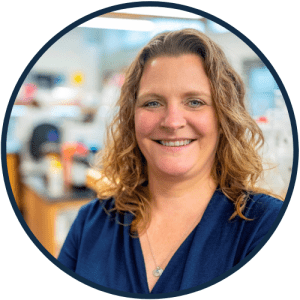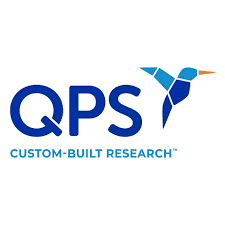Panel discussion: overcoming the unique bioanalytical challenges of supporting complex, regulated clinical studies
In a post-COVID-19 era, decentralized studies are commonplace and encourage a patient-centric focus. These decentralized and often complex regulated clinical studies require logistical and regulatory considerations. In this discussion, our panelists cover the key factors for successfully supporting a clinical trial from a bioanalytical perspective and discuss the use of LC−MS, LBA and hybrid assays for supporting these trials. They explore the role of automation in a ‘supporting’ and not ‘replacing’ capacity and the regulatory grey areas around sample matrices. Finally, the panelists close the discussion by looking at how the requirements of regulated method development can be met and the strategies that can be employed to ensure the reliability and reproducibility of these studies.
What will you learn?
• The bioanalytical considerations for clinical drug-drug interactions, sample stability issues and companion biomarker studies
• How LC−MS, LBA and hybrid approaches are currently being used to support bioanalysis and their advantages and drawbacks
• The challenges associated with validation, dynamic range and LLOQ
• The regulatory considerations for PK bioanalysis
Who this may interest?
- Researchers involved in regulated clinical studies
- Those working with LC−MS, LBA or hybridization approaches
- Those interested in bioanalytical automation and regulated method development
Speakers
 Gurleen Saini
Gurleen Saini
Senior Principal Scientist
Boehringer Ingelheim (Germany)
Gurleen leads the immunogenicity characterization laboratory, focusing on assessing the clinical impact of anti-drug antibody responses against various modalities. Before her current role, Gurleen amassed over 13 years of experience in various sectors of bioanalysis, including PK, ADA and nAb, across pharma/biotech and CROs. She earned her Master of Science in Biotechnology from Johns Hopkins University (MA, USA) and her Bachelor of Science from the University of North Carolina (NC, USA). When she is not uncovering new frontiers of immunogenicity, she is off exploring new places with her family and friends.
 Kimberley Buytaert-Hoefen
Kimberley Buytaert-Hoefen
Executive Director and Global Head of Regulatory Services
QPS Holdings, LLC (DE, USA)
Kimberley Buytaert-Hoefen is a seasoned professional with 25 years of preclinical and clinical experience in research and development, gene and cellular therapy, and the commercial pharmaceutical and medical device industries. As a former FDA Investigator, she performed surveillance inspections for cause, pre-approval establishment, and post-marketing adverse drug experience reporting. Kimberley is a Subject Matter Expert for pharmaceutical, gene and cellular therapy and medical device manufacturing regulatory strategies, with an emphasis on sterile processing and, as a result, is highly skilled in authoring regulatory documents, interacting with regulatory agencies and consulting on GLP, GCP and GMP regulatory compliance.
 David Rizzo
David Rizzo
Principal Bioanalytical Investigator
AbbVie (IL, USA)
David Rizzo received his BS in Chemistry from the Georgia Institute of Technology (GA, USA) in 2009 and his PhD in Chemistry from Vanderbilt University (TN, USA) in 2016, under the supervision of Dr Richard Caprioli. His graduate work focused on utilizing high mass accuracy and spatially directed proteomics to improve protein identifications in imaging mass spectrometry experiments. David joined AbbVie directly after graduate school as a Senior Scientist in the Regulated Bioanalysis department. His focus has been on method development and validation of quantitative HPLC−MS/MS methods for drug candidates, including hybrid assays for the measurements of large molecules, such as proteins, antibodies and antibody-drug conjugates. David is now a Group Manager as well as a responsible Scientist/Principal Investigator/Principal Bioanalytical Investigator for many GLP tox and clinical programs throughout AbbVie’s development pipeline. He has also been an active member in initiatives for decentralized clinical trials from a bioanalytical perspective.
 Jennifer Zimmer
Jennifer Zimmer
Laboratory Director
Alturas Analytics, Inc., (ID, USA)
Dr Jennifer Zimmer is the Laboratory Director at Alturas Analytics, Inc. and has been working in the field of bioanalysis for over 20 years. She received her BA degree in English and Zoology from the University of Idaho (ID, USA) and her PhD in Pharmacology from the University of Colorado Health Sciences Center (CO, USA), working in Dr Robert Murphy’s laboratory on the leukotriene lipid mediator pathway. Her post-doctoral experience in Dr Richard Smith’s laboratory focused on using metabolomics to elucidate disease pathways and to discover novel biomarker targets. Dr Zimmer is responsible for the overall operation of the Alturas Analytics laboratory. She has experience with FTICR, TOF, ion trap and quadrupole instrumentation. She has utilized these instruments for quantitation as well as structure elucidation using HPLC−MS/MS and HPLC−MSn. She oversees the scientific staff and ensures that client deliverables are met while working laterally with the Alturas Analytics, Inc. Quality Assurance Unit to maintain laboratory compliance with all procedures and regulations. Dr Zimmer is an active participant in the Global CRO Council (GCC) and a member of the American Society for Mass Spectrometry.
 Michael Partridge
Michael Partridge
Senior Director, Bioanalytical Sciences
Regeneron (NY, USA)
Michael received his PhD from Sydney University (Australia) and CSIRO developing immunoassays to screen for genetic variants in plants. He moved to the USA for a postdoc at Columbia University (NY, USA) where he investigated integrin-mediated cell signaling and motility. He went on to study tumorigenesis and eventually developed immunoassays to detect biomarkers of radiation exposure. Michael left academia to work at Regeneron where he led a group of scientists developing and validating PK, ADA, NAb and biomarker assays for nonclinical and clinical studies. He is currently a Senior Director in the Bioanalytical Sciences and is the BA and immunogenicity strategic lead for multiple therapeutic areas, interacting directly with clinical teams including physicians, clinical pharmacology and regulatory departments.
This webinar was recorded on 25 September 2024
In association with:
This webinar was recorded on the 25th of September 2024.


